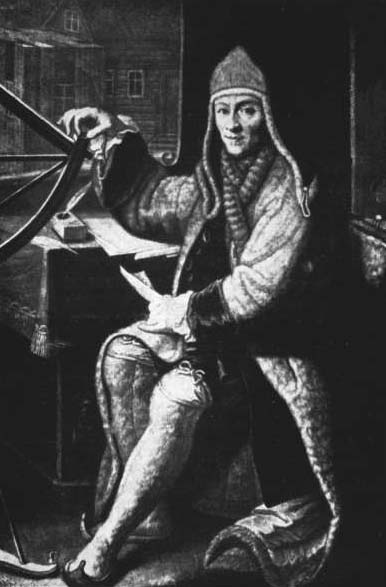<Back to Index>
- Astronomer Maximilian Hell, 1720
- Writer Mikhail Afanasyevich Bulgakov, 1891
- Indian Freedom Fighter Sukhdev Thapar, 1907
PAGE SPONSOR

Maximilian Hell, S.J. (Hungarian: Hell Miksa) (May 15, 1720 – April 14, 1792) was a Hungarian astronomer and an ordained Jesuit priest from the Kingdom of Hungary.
Hell was born Maximilian Höll in Selmesbánya, Kingdom of Hungary (present day Banská Štiavnica, Slovakia). Höll later changed his surname to Hell. He was the third son from the second marriage of his father. He had 21 brothers and sisters. His father was Matthias Cornelius Hell (Matthäus Kornelius Hell). The place of birth of Maximilian's father is unknown; the settlements Körmöcbánya (today Kremnica), Schlagenwald, (today Horní Slavkov) or Schlackenwerth (today Ostrov nad Ohří) are most frequently given. Born in a mixed German, Hungarian and Slovak town, he presumably knew Slovak to a certain extent and he probably understood Hungarian, but his mother tongue was German. Even so, Hell considered himself a Hungarian. Hell with another Jesuit priest, János Sajnovics tried to explore the already widely discussed but insufficiently documented affinity between the language of the Sami, Finns and the Hungarians during and after their residency in Vardø. (Demonstratio idioma Ungarorum et Lapponum idem esse, 1770 Copenhagen).
Hell became the director of the Vienna Observatory in 1756. He published the astronomical tables Ephemerides astronomicae ad meridianum Vindobonemsem ("Ephemerides for the Meridian of Vienna"). He and his assistant János Sajnovics went to Vardø in the far north of Norway (then part of Denmark) to observe the 1769 transit of Venus. He was elected as a foreign member of the Royal Danish Academy of Sciences and Letters on October 13 1769. This society also funded the publication of his 1770 account of the Venus passage Observatio transitus Veneris ante discum Solis die 3. Junii anno 1769 (Copenhagen, 1770).
There was some controversy about Hell's observations of the transit of Venus because he stayed in Norway for eight months, collecting non-astronomical scientific data about the arctic regions for a planned encyclopedia (which never appeared, in part due to the suppression of the Jesuit order). The publication of his results was delayed, and some (notably Joseph Johann Littrow) accused Hell posthumously of falsifying his results. However, Simon Newcomb carefully studied Hell's notebooks and exonerated him a century after his death in Vienna.
Besides astronomy, Hell also had an interest in magnet therapy (the alleged healing power of magnets), although it was Franz Anton Mesmer who went further with this and received most of the credit.
In 1771, Hell was elected a foreign member of the Royal Swedish Academy of Sciences.